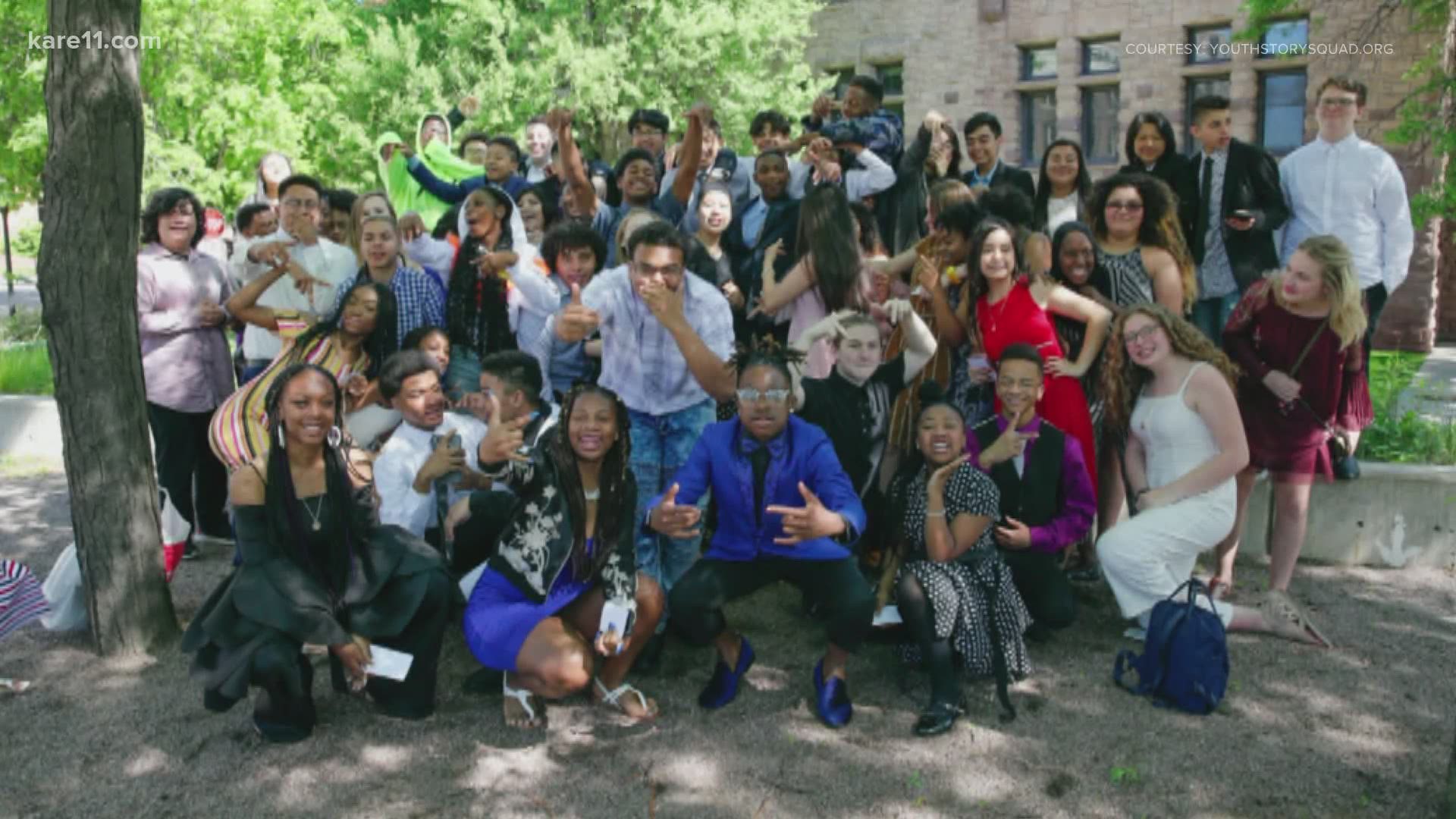MINNEAPOLIS — Between the death of George Floyd and Coronavirus, there have been a lot of tough conversations recently. Most of us are not prepared to have those talks. But there’s a program at the University of Minnesota that’s working to change that for the next generation.
Minnesota Youth Story Squad is an outreach program where Undergrads make digital stories about their own lives and share them with middle schoolers in the many diverse communities in the Twin Cities.
The program was founded by Dr. Kari Smalkoski and Dr. Jigna Desai, “There are few things more powerful than sharing a personal story. If we tell our story we get to be seen the way we want to be seen but if we actually listen to other people’s stories, we actually change how we see everyone else.”
The hope is that the 8th and 9th graders in the program will bond with their mentors and become comfortable sharing their own story.
The program was set up, in part, to simply ask youth what’s on their mind and create an environment where they can freely talk about what they’re thinking and what’s important to them.
Stories in the program have ranged from a student sharing a perspective of being the daughter of a Hmong refugee to another talked about the realities of being a gay teen in rural Minnesota.
Desai has heard many amazing stories shared since the program’s inception. “Sometimes they’re really personal, it will be about mental health, it will be about mental illness, it will be about coming out to their family.”
Difficult conversations often stem from the stories. Conversations about systemic racism, police violence, and sexism. Topics that youth are eager to discuss, share their views on and try to foster change to make the world a better place.
Desai often hears worries about inheriting a broken world, one with less opportunities than previous generations. “They're anxious to make change. They don’t always have the tools, but they know it’s something that they want to do.”
The program strives to give students those tools by spreading a message of equality and creating a better understanding of the cultural backgrounds and beliefs of people living in their community and sitting beside them in the classroom. “We want to give them an opportunity, by thinking through it, to feel empowered that there is possibility for making change. To make them feel their voice matters.”

